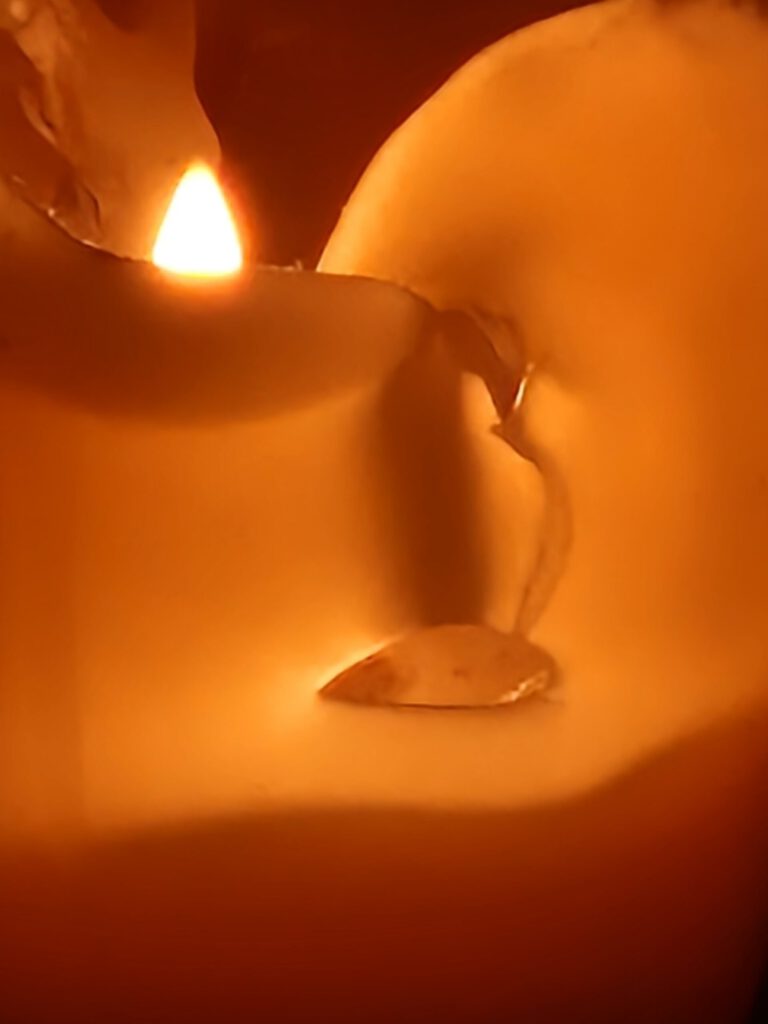Imposter Syndrome: a psychological condition that is characterised by persistent doubt concerning one’s abilities or accomplishments accompanied by the fear of being exposed as a fraud despite evidence of one’s ongoing success.
Merriam-Webster Online Dictionary
The curious paradox is that when I accept myself as I am, then I can change.
Carl Rogers
Each time I write a book, every time I face that yellow pad, the challenge is so great. I have written eleven books, but each time I think, ‘Uh oh, they’re going to find out now. I’ve run a game on everybody and they’re going to find me out’.
Maya Angelou
I drove terribly. It is what it is…. I’m just useless.
Lewis Hamilton, Former F1 World Champion
As is often the case, several apparently unrelated events during the week have pointed me in the direction of the topic of this week’s essay.
It was the report on the F1 Hungarian Grand Prix that caught my attention this morning. Lewis Hamilton is a forty-year-old professional racing driver who has already won the world championship seven times. The last three years have been marked by mediocre results, and he changed teams this season in the hope of returning to more successful ways.
Asked about being beaten by his less experienced team mate in the qualifying sessions, he made a short statement which included the words: `I’m just useless´. This caught my attention. How could a person as accomplished as Hamilton arrive at such a conclusion?
My thoughts moved to an inspiring online AA meeting which I attended earlier in the week. The speaker had a special gift in how he viewed his life. He shared his experience, strength, and hope through the lens of his childhood.
Like many people in recovery, he had had a childhood full of pain and adversity. His story touched me deeply. As he laid out the circumstances and events of his younger days, I began to realise that what we refer to as `Imposter Syndrome´ has more to do with being than with doing. I will elaborate below.
First, here is a summary of an imaginary interview carried out by Dr Gabor Maté with me, an alcohol and marijuana addict, who has now been living in recovery for many years. Dr Maté has been working in the field of addiction and trauma for over forty years. The interview follows the structure of an approach which he has developed over the years. He calls it `compassionate enquiry´.
GM: Tell us, what did the alcohol and weed do for you?
PLi: It completely numbed the agitation and quietened the mind. Everything went soft, warm, and safe.
GM: You talk about the warmth, and safety. Can you elaborate?
PLi: Warmth yes, safety yes, like a soft protective blanket.
GM: Look addiction was not to your problem. Your problem was the lack of safety, of inner warmth, the lack of a sense of belonging, of peace. So, addiction is not a primary problem. It’s not a disease. It’s actually a solution to a problem. The real question is, what is the underlying problem?
PLi: I’m not sure. Let’s explore this further.
GM: Under healthy, favourable circumstances, when the parent and infant are looking into each other’s eyes in true connection, they both have endorphins — natural opiates — flooding their brains. These provide those feelings of safety, warmth, belonging, and peace.
If, for whatever reasons, the young child experiences the parents as often (or chronically) absent, unreliable, unpredictable, even hostile, this can result in terrible feelings of abandonment, anxiety, dread, disconnectedness, and shame.
PLi: Yes, this is what I remember. I’ve come to call it `the unbearability of being´.
GM: Let me ask you this: As a child, who did you talk to about those feelings?
PLi: Nobody.
GM: Exactly. The message you received is: `You’re all alone. You’re on your own´. That creates coldness, anxiety, fear. Then, in your teens, the alcohol and THC come along and say: `Oh now Patrick, now you’re safe, now you’re warm´. So when the chemical substance comes along later (from alcohol, to weed, to cocaine, to heroin, in some cases even sugar), it is giving you what you should have had in the first place.
PLi: That primordial feeling that I needed, yes. The unconditional love, the cherished belonging that remained elusive.
GM: That’s your biggest trauma, Patrick. How alone you were. So, the pain and the fear are not the trauma itself. It’s the being alone with them that creates the trauma…
Inspired by the share I heard at the meeting and informed by the wonderful work of Gabor Maté, a shift took place in my understanding of what we call Imposter Syndrome.
The definition quoted at the top of this essay provides a clue as to how we have been thrown off the trail: the reference to `persistent doubt concerning one’s abilities or accomplishments´ would have us believe that it is about what we do.
For me it has become clear that this is simply the secondary manifestation of the root problem which is a disturbed relationship with who we are. It is primarily an existential issue and only secondarily one of performative concerns.
The birthday today of one of my beloved siblings, the fourth of five younger brothers, prompted me to travel back in time to review the circumstances of our household on the day he was born.
It was August 4, 1970. His older siblings were the following ages: 16, 15, 13, 11, 9 (me), 6, 4, and 2 years old. Mammy was in her 41st year and Dad in his 45th. The tenth and final sibling was born twenty-one months later. That was a pretty crowded house!
Having, in the meantime, myself accumulated experience in having and raising (two) children and still being engaged in the inner work of recovery from substance addiction, it is clear to me that there may have been deficits in the arena of `the parents and infant looking into each other’s eyes in true connection´.
In this time travel, I sense that everyone was stressed, some even overwhelmed. My parents had both grown up in families of eleven children. They had re-created what they had known.
Circumstances were different in our generation, however. There were no private tutors or governesses, no cooks, and grounds men, and we were geographically cut off from both lines of our extended family.
Within a few short years, both parents, each smoking a packet of cigarettes per day, would succumb to the progressive terminal disease of cancer. Beautiful souls, worn out.
Paradoxical as it may seem, I felt all alone in this family of origin. That was the true trauma.
The only explanation I could find as to why this `unbearability of being´ had become my daily reality was that there must have been something inherently wrong with me. The only alternative explanation, — that my parents were so overwhelmed that they could not meet my basic emotional needs — would have been too much to endure for a child still dependent upon his parents.
Add to these internal ruminations the messaging common in any group trying to function as best it can under severe pressure and it is no wonder that some of us arrive at the conclusion that we are useless, not good enough, that the world would be better off without us.
Is it, perhaps, childhood shame which broke through the surface for Lewis Hamilton on the weekend?
The good news is that recovery and healing are always possible. As Carl Rogers pointed out, the portal to recovery is a paradox. Only when I accept myself as I am, can I then begin to change.
For somebody who had been fighting reality for so long in the hope of denying or suppressing the `unbearability of being´, this comes as a revelation. It is totally counter-intuitive, which is why it takes many of us so long to discover, embrace, and put into practice.
As an adult, it is now my responsibility to provide for my inner child the safety and warmth upon which he missed out first time round. That is a key of the recovery programme of Adult Children of Alcoholics (ACA). This fellowship, spawned from AA in the 1970’s, is designed to help anyone who wishes to recover from the effects of growing up in a dysfunctional family, whether their parents (caregivers) were alcoholics or not.
It is here, after many years of recovery in AA, during which time I have become liberated from the bondage of alcohol and other addictive substances, that I am now learning to gain access to my worthiness through working with my inner child.
The terror of the past cannot be undone. What is possible, however, is that we look inside and locate those wounds of childhood (trauma) which have been waiting for treatment for so long. By attending to and tending these wounds, we recovery our sense of worthiness, independent of our life situation or actions.
The sheer fact that we are here is testament to the fact that we are worthy. By attending to these long supressed wounds we recover our sense of belonging, the basis of all spiritual, emotional, and physical well-being.
By making this shift, our well-being is no longer determined by what goes on around us but by our conscious relationship with and response to what is going on. This is the definition of emotional sobriety.
It is then, and only then, that we can build confidence in our abilities and accomplishments, thus breaking free of the imposter syndrome in the realm of our actions. We move away from being ashamed of ourselves to a stance of compassion, gratitude, and curiosity.
As Brené Brown once stated:`When we can let go of what other people think and own our story, we gain access to our worthiness — the feeling that we are enough just as we are and that we are worthy of love and belonging´.






